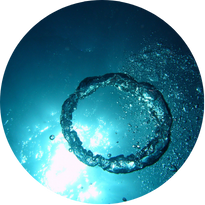Imagine 2035: Wearables measure not just steps and sleep, but also the quality of your social connections. Your health dashboard displays: "Social recovery optimal - two deep conversations, a nature walk with friends, zero toxic interactions." The next generation of high performers optimizes not only VO2max and HRV, but also the density and quality of their friendship networks. Why? Because resilient relationships act as a biological shield – they dampen stress, stabilize mood, and prolong healthy years of life. This future begins today, as we train social health as deliberately as strength, endurance, and sleep.
Friendship networks are more than just "social niceties." They serve as regulators of our stress physiology and influence how well we recover, think, and decide. Central to this is the quality of interaction: emotional supportthe feeling of being understood, valued, and supported during crises, instrumental supportpractical help in everyday life, social strainexperiences of rejection, hostility, or negativity. It is not just about the number of contacts but the density of trusting relationships and the context in which they occur. Community activities generate social cohesionshared identity and belonging, which measurably impacts psychological strain. Conversely, networks can also "infect": Behaviors such as alcohol consumption can spread through circles of friends. Social health, therefore, means consciously designing the architecture of one’s own network – strengthening protective factors and minimizing risk factors.
High-quality social relationships correlate with better well-being and lower psychological strain. Precisely measured dimensions such as emotional support and perceived rejection predict physical and psychological outcomes; short, validated scales allow the monitoring of these qualities in everyday life [1]. At the population level, it is shown that community-oriented activities and club life reduce the risk of rising psychological strain among older women over the years – regardless of how many private contacts exist [2]. Nature contacts enhance the effect: Just 30-minute guided walks improve mood, stress symptoms, mindfulness, resilience, and sleep – practical and accepted by the general population [3]. Additionally, people with mental health issues report greater gains in well-being from regular stays in green and blue spaces, even though barriers like safety concerns or social anxiety exist; social support facilitates access [4]. Importantly, networks can also be harmful. Problematic drinking can spread along friendship relationships – when the social context is disrupted, the influence weakens, highlighting the role of the environment in behavioral contagion [5]. And when friendships end abruptly, emotional pain can linger long: Adolescents often experience prolonged, distressing grief with sleep disturbances and post-traumatic symptoms after the death of peers; targeted support is essential [6].
The NIH Toolbox for social relationships provides short scales that reliably capture emotional and instrumental support, friendship, loneliness, as well as perceived rejection and hostility. These psychometrically tested instruments allow for precise measurement of the "quality" of social interactions and linking them to health parameters – a foundation for personalized social interventions and digital health trackings [1]. Longitudinally, a Japanese cohort of older adults shows that community participation – such as volunteering, local events, or senior clubs – is associated with a lower increase in psychological strain among women over five years. The relevance lies in the contextual component: Shared activities create belonging and meaning, providing protection that goes beyond mere private contacts [2]. Complementarily, intervention and mixed-methods data demonstrate that short, guided nature walks in everyday environments improve affective and stress-related outcomes and are practical, while social accompaniment reduces barriers and makes outdoor time more likely [3] [4]. In contrast, a longitudinal study based on social networks reveals that problematic alcohol consumption is context-dependent and socially "contagious"; as the pandemic disrupted the usual settings, the mutual influence between friends significantly weakened, while individual habits remained stable. This emphasizes the situational framework as a mechanism of social influence – a lever for behavior control through context design [5].
- Schedule weekly "Deep Connection" appointments with your closest friends: 60–90 minutes without screens, with a clear intention (exchange, feedback, support). Use simple check-ins ("What was challenging this week? What energized you?"). This way, you train emotional support – a core predictor of mental and physical health [1].
- Incorporate "Community Reps": Choose a group activity with a meaningful connection (volunteering, club, regular club event) and block it in your calendar like a training session. Aim for at least 2 hours per week in a communal context. Evidence shows a buffering effect against rising psychological strain, especially in women [2].
- Move meetings outside: Plan 1–2 social nature sessions per week (walk in the park, easy trail run, SUP on the lake). Short, guided nature walks improve mood, stress, and sleep; together, motivation barriers and safety concerns decrease [3] [4].
- Consciously design your context: Meet friends in environments that encourage healthy behavior (café instead of bar, hiking trail instead of living room). This reduces the social "baggage" of unhealthy patterns like excessive drinking, which are contextually reinforced [5].
- Develop a "Support Plan" for loss: Keep a list of contact points ready (friends, counseling services, grief groups) and arrange low-threshold weekly check-ins in case a friendship breaks or a loss occurs. Early, targeted support prevents prolonged grief reactions [6].
Social health is becoming the next major metric alongside HRV and sleep. In the coming years, we expect more precise Social Health Scores that capture the context and quality of your relationships and suggest interventions in real time. Those who consciously curate their network now are building a durable resource for resilience, performance, and well-being.
This health article was created with AI support and is intended to help people access current scientific health knowledge. It contributes to the democratization of science – however, it does not replace professional medical advice and may present individual details in a simplified or slightly inaccurate manner due to AI-generated content. HEARTPORT and its affiliates assume no liability for the accuracy, completeness, or applicability of the information provided.













